Talks On Psychoanalysis
Training
Episodes
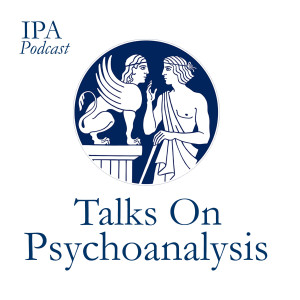
Thursday Jun 05, 2025
Thursday Jun 05, 2025
What happens when the analytic setting—built on confidentiality and silence—meets the institutional demands of psychoanalytic training? Can the frame of supervision truly preserve the integrity of the analytic pact, or does it inevitably put it at risk?
In this episode, Ellen Sparer explores a central paradox in psychoanalytic formation: the tension between the confidentiality of analytic work and the structural requirements of supervision. Drawing from her experience at the Paris Psychoanalytic Institute, she asks whether supervision risks undermining the very foundation of the analytic situation—what Freud, in An Outline of Psychoanalysis, described as a pact in which “the patient’s sick ego promises us the most complete candour…” while “we, on the other hand, assure him of the strictest discretion.”
Through reflections on André Green, José Bleger, and Freud’s concept of disavowal, Sparer examines what she calls a “noisy contradiction”—a situation in which the analyst-in-formation becomes both observer and observed, and where the silence essential to the analytic space is disturbed by institutional structure. She invites us to consider the Institute’s role as a symbolic third—present, structuring, yet potentially unsettling—and to ask whether we can live with this paradox without disavowing its presence.
Rather than resolving the contradiction, this episode engages with it directly, as Ellen Sparer offers a nuanced and courageous inquiry into a space of ethical tension, institutional inheritance, and potential transformation at the core of analytic formation.
Ellen Sparer is a training analyst at the Paris Psychoanalytic Society and former Director of the Paris Institute of Psychoanalysis, a role she held until March 2025. She has served as co-chair of the Applicant Societies Committee of the IPA, where she contributed to the evaluation of emerging psychoanalytic groups seeking IPA recognition. She is also an Associate Editor of the International Journal of Psychoanalysis, where she’s part of the Education Section, and a scientific advisor for the Jahrbuch of Psychoanalysis. From 2009 to 2019, she was on the editorial board of the Revue Française de Psychanalyse. Most recently, she was elected to the IPA Board as a European representative.
Her scientific work and publications focus on the unconscious ego, supervision, training, the frame, and ethics. She has also written on countertransference phenomena, including the function of the analyst’s dream in the treatment process.
This Podcast Series, published by the International Psychoanalytical Association, is part of the activities of the IPA Communication Committee and is produced by the IPA Podcast Editorial Team.
Co-Editors: Gaetano Pellegrini and Nicolle Zapien.
Editing and Post-Production: Massimiliano Guerrieri.
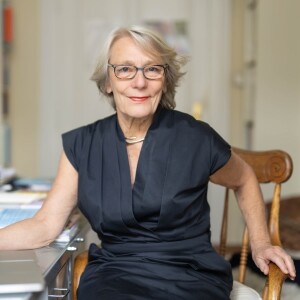
Thursday Dec 14, 2023
Thursday Dec 14, 2023
The place of sexuality in psychoanalytic treatment and training today: Can we observe a disappearance of sexuality in case reports and supervisions?
How does the evolving discourse on sexuality influence psychoanalytic practice and training? In an era where sexual dysphoria is seemingly on the rise, particularly among younger generations, questions arise about the current positioning of Freud's drive theory and the status of sexual issues in psychoanalytic education. Are we witnessing a shift where sexuality loses its central place within psychoanalytic thought?
In this episode of the IPA Talks On Psychoanalysis podcast series, we explore these questions through a comprehensive discussion. The focus is on the potential diminution of sexual themes in psychoanalytic case reports, as observed in recent years, and its implications for psychoanalytic methodology. The discourse originated in the 2021 supervisors' and training analysts' conference of the German Psychoanalytical Association (DPV) in Cologne, Germany and quickly spread to other places, reflecting global concerns about the reduced emphasis on sexuality in candidates' reports for qualification.
This exploration revisits some cornerstones of Freud's seminal theories but also examines the more modern theories and psychoanalytic techniques that emphasize transference-countertransference dynamics for the understanding of sexual fantasies and identities. The role of societal changes, shifts in sexual identity, and the impact of media on sexual behaviour and expression are critically analyzed.
The paper featured in this episode has been previously presented at various events, including a SPP Webinar and the 53rd IPA Congress in Cartagena. It has been translated and published in several psychoanalytic Journals. The IPA Talks On Psychoanalysis podcast series now offers it to its listeners in German, English, Spanish and Italian.
You can access the recent edition of the APA's Journal of Psychoanalysis, featuring a publication with two accompanying commentaries by Alicia Killner and Beatriz Zelcer, at this link: https://revista-de-psicoanalisis.apa.org.ar
Rotraut De Clerck is a renowned psychoanalyst of the German Psychoanalytical Association (DPV) and has been a long-term guest to the British Psychoanalytic Society (BPS). Her work notably intersects psychoanalysis with culture and public discourse. She has carried out the “Psychoanalysis in Literature – Literature in Psychoanalysis” series at the Literaturhaus Frankfurt, fostering dialogue between contemporary writers and Freud's texts. De Clerck's clinical interests include theories on the dynamic interplay of narcissism and object love, of the unconscious and changes in sexuality, including homosexuality “neo-sexualities” and the concepts of masochism. De Clerck's contributions extend to psychoanalytic portraits of literary figures like Albert Camus, Virginia Woolf, painters like Maria Lassnig and notably Lucian Freud. She chairs the EPF's “Psychoanalysis and Literature group and serves as a Consultant on the IPA Culture Committee. Her recent projects focus on the place of sexuality in psychoanalytic theory and practice today.
Link to the paper https://docs.google.com/document/d/1jwtEt3rBf0BSGsl_uFxv6xwVrPPr_dvR/edit?usp=drive_link&ouid=112457875385152358388&rtpof=true&sd=true
This episode is available also in:
German
Spanish
Italian
A subtitled version of this podcast is available on our YouTube channel:https://youtube.com/playlist?list=PLhxiwE76e0QaOquX3GujdwNLFsgxUQNXz&si=yf381EDu3pess6Yz
This Podcast Series, published by the International Psychoanalytical Association, is part of the activities of the IPA Communication Committee and is produced by the IPA Podcast Editorial Team.
Head of the Podcast Editorial Team: Gaetano Pellegrini.Editing and Post-Production: Massimiliano Guerrieri.
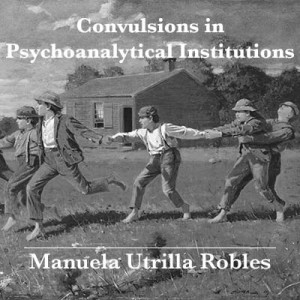
Monday Jun 07, 2021
Monday Jun 07, 2021
In this episode, Manuela Utrilla Robles will tell us about Convulsions in Psychoanalytic Institutions, from the lowest of human passions created by group relationships between psychoanalysts, to the highest of scientific activities. Her views on institutions include her published works, in which she distances herself from anthropomorphic considerations to propose a working method that places psychoanalysts and psychoanalysis at the centre of convulsions.
Manuela Utrilla Robles has a doctorate in medicine and child psychiatry from the University of Geneva. Professor at several Universities (Switzerland, France, Madrid). Psychoanalytic Association of Madrid: Full Member with teaching duties, Chairperson. Director of the Training Institute, Journal, and Publications. In Europe: Representative of the FEP in FEPAL, co-coordinator of free clinical groups. Honorary Member of the European Society of Psychoanalysis for Children and Adolescents (Paris). At the IPA: European representative of the Board. Chair of a Sponsoring Committee and member of several Committees.
She has written 20 books and collaborated in many others, and is the author of more than 100 scientific articles.
LInk to the paper https://drive.google.com/file/d/18LMky_m03bExrMfB5pOPzf2gETMUOINp/view?usp=sharing
This episode is available also in Spanish
Snap the Whip (1872), Winslow Homer. Courtesy Met Museum, New York.
In Tribute to Manuela Utrilla Robles
On February the 4th, left us, with great pain in the hearts of those who knew and treated her, Manuela Utrilla Robles, a training psychoanalyst from the Madrid Psychoanalytic Association. A well-known analyst in Spain and perhaps much more internationally, Manuela spoke and her brilliant and always inspiring words transported us directly to everything that is done with love and passion properly understood. Great connoisseur of the unfathomable depths of the human soul, Manuela also knew the depths of the institutions as she left us written in one of her latest works that we published in the IPA Podcast "Convulsions in psychoanalytic institutions". I would like to leave constancy of the last words that she wrote to me and that I believe contain in an enigmatic and condensed way her idea of a life “worth living”:
“When force becomes art, enclosed in a sentence that contains a word, when the word encloses art, at the right moment where you are. There, you can find yourself. Do not forget it!"
We will never forget you Manuela! Your words and your joy will remain alive in our hearts!
Ana Martin Solar, IPA Podcast Team Member
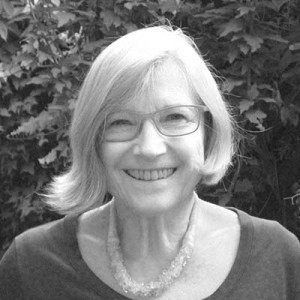
Monday May 17, 2021
Monday May 17, 2021
In this episode, Angelika Staehle, current chair of the IPA Psychoanalytic Education Committee, presents the approach and results of their new project “Meetings of Societies on Education“. The project is an innovative response of the IPA to the need for a means of implementing a collegial quality enhancement of psychoanalytic education as an alternative to oversight. The goal is to enhance creative self-reflection within and among Institutes on what we want to transmit to the newer generations of psychoanalysts. PEC will continue these meeting of Societies as a permanent offering to all IPA Component Societies.
Angelika Staehle is a Clinical psychologist, Training Analyst for Child-, Adolescent- and Adult Psychoanalysis (DPV /IPA) and for Group-Analysis (GAS/London, D3G). For many years member of the executive board and director of training for adult- and child analysis in the DPV. Currently, chair of the psychoanalytic education committee/IPA. She works in full private psychoanalytic practice with children, adolescent and adults, individually and in groups.
Her publications focus on: Psychoanalytic technique, especially disturbances of symbolisation of children, adolescents and adults, integration of adult- and child- analysis, group processes in Institutions, psychoanalytic education.
Link to the paper in English, German, French and Spanish.
This episode is available also in German
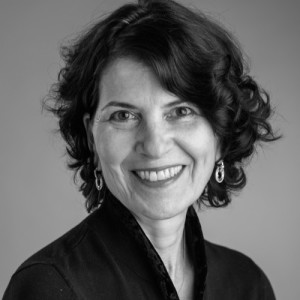
Friday Feb 26, 2021
Friday Feb 26, 2021
Lena Theodorou Ehrlich is a Training and Supervising Analyst at the Michigan Psychoanalytic Institute, visiting faculty at the Denver Psychoanalytic Institute, and Clinical Supervisor at the University of Michigan, Department of Psychiatry. She has maintained a lively practice of psychoanalysis, psychotherapy and supervision in Ann Arbor, Michigan for 30 years. She is internationally recognized for her original contributions to the literature on beginning and deepening analysis and building and maintaining a psychoanalytic practice. Her 2019 paper, Teleanalysis: Slippery slope or rich opportunity? won the 2019 Journal of the American Psychoanalytic Association prize award for excellence in psychoanalytic scholarship and distinguished contributions to the journal. Her book, Psychoanalysis from the Inside Out: Developing and Sustaining an Analytic Identity and Practice is available on Amazon and the Routledge Press website.
email: lenaehrlich@drlenaehrlich.com
PSYCHOANALYSIS FROM THE INSIDE OUT.Developing and Sustaining an Analytic Identity and Practice.
Published July 29, 2020 by Routledge180 Pages

Monday Jan 25, 2021
Monday Jan 25, 2021
In this first-of-kind book, senior psychoanalysts from around the world offer personal reflections on their own training, what it was like to become a psychoanalyst, and what they would like most to convey to the candidate of today. With forty-two personal letters to candidates, this collection helps analysts in training and those recently entering the profession to reflect upon what it means to be a psychoanalytic candidate and enter the profession. Letters tackle the anxieties, ambiguities, complications, and pleasures faced in these tasks. From these reflections, the book serves as a guide through this highly personal, complex, and meaningful experience and helps readers consider the many different meanings of being a candidate in a psychoanalytic institute.
Fred Busch, Ph.D. is a Training and Supervising Analyst at the Boston Psychoanalytic Society and Institute. Dr. Busch has published over 70 articles in the psychoanalytic literature, and four books, primarily on the method and theory of treatment. He has been on numerous editorial boards. His work has been translated into 10 languages, and he has been invited to present over 160 papers and clinical workshops nationally and internationally. Dear Candidate was published by Routledge in 2020.
A pre-publication review from Charles Baekeland, I.P.S.O. President-elect:
"It is possible that you will be surprised and educated by what you find in this book. Determination, kinship, wisdom (and some heartbreak) walk hand in hand through its pages with a rousing breadth, unlikely to be available at a single institute. The writers of the letters have been generous with their experience. Agreements emerge: the profound value of personal analysis, free from artificial institutional requirements, and the necessity of steeping oneself in the literature. Another voice is also audible. Readers of Dante will hear: "Retain all hope, ye who enter here––much hardship awaits you, as do human splendors'."
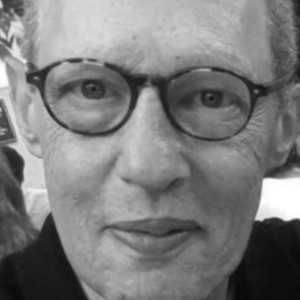
Monday Jan 04, 2021
Monday Jan 04, 2021
Leopoldo Bleger left Argentina in 1976, where he trained as medical doctor and psychiatrist, and since then he lives in Paris. He is a «supervisor analyst» of the French Association (Association Psychanalytique de France). He has published several papers on the work of Melanie Klein, psychoanalysis in Río de la Plata (Argentina and Uruguay) and on problems of methodology in psychoanalysis. He is member of the EPF (European Psychoanalytic Federation) Working Party on Specificity of the psychoanalytic treatment today. He was General Secretary of the European Federation (2012-2016) and President of his society (2017-2019).
A first version of this paper was read in the Extraordinary Symposium of EPF (European Federation) in November 2017. This Symposium was organized to discuss the vote of the change of the number of sessions for training analysis, a decision voted by IPA in July 2017, a decision strongly resisted by many European societies. It was published afterwards in a book edited by Alberto Cabral and Abel Fainstein, On Training Analyses. Debates, in 2019.
This episode is available also in French and Spanish